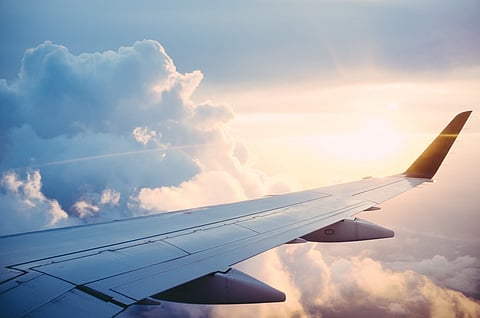
- NEWS
- the EDIT
- COMMENTARY
- BUSINESS
- LIFE
- SHOW
- ACTION
- GLOBAL GOALS
- SNAPS
- DYARYO TIRADA
- MORE

The Department of Energy or DoE is crafting a regulatory framework that would guide industry stakeholders in decarbonizing the commercial aviation industry by using sustainable aviation fuel or SAF.
"The use of SAF is intended to reduce the carbon footprint associated with aviation operations. This alternative fuel source, derived from renewable feedstock, holds the potential to lower greenhouse gas emissions or GHG while ensuring the highest safety and performance standard," Undersecretary Alessandro Sales said.
"As a commitment to creating a sustainable aviation transport sector that will contribute to the broader national efforts towards a low-carbon future, the DoE is working to establish the necessary framework and regulations to support the adoption of SAF," Sales added.
Green fuel
SAF is an environmentally sustainable and chemically identical alternative to fossil fuel-based aviation fuel. It can be processed from plant and used oil feedstock such as forestry and agricultural waste and used vegetable oils.
Locally, one potential feedstock for SAF is coconut oil or CNO, which is also used for biodiesel production.
Last February, the DoE reportedly met with the Civil Aviation Authority of the Philippines, the Philippine National Oil Company, and the European Aviation Safety Agency or EASA to discuss the potential advantage of exploring SAF in the country in compliance with the Carbon Offsetting and Reduction Scheme for International Aviation or CORSIA by 2027.
Notably, the DoE noted that EASA has also prepared a proposal for the SAF readiness evaluation for the country to be completed by December.
CORSIA allows the use of SAF derived from biomass or waste resources to reduce the carbon offsetting requirements of airlines.
Under the CORSIA's timetable, participating International Civil Aviation Organization or ICAO Member States are mandated to comply with the CO2 offsetting requirements by 2024 to 2026 while the mandatory compliance was set for 2027 to 2035.
The Philippines as an ICAO member joined CORSIA in December 2018 through CAAP.
